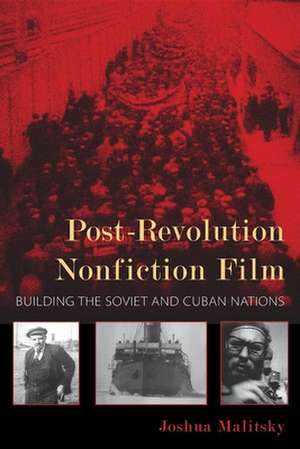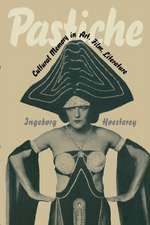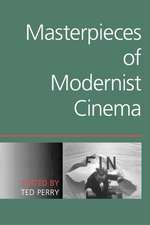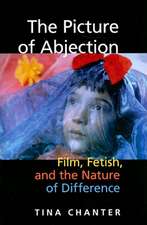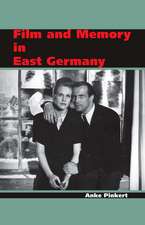Post-Revolution Nonfiction Film: New Directions in National Cinemas (Paperback)
Autor Joshua Malitskyen Limba Engleză Paperback – 19 mar 2013
Preț: 176.60 lei
Nou
33.80€ • 35.15$ • 27.90£
Carte tipărită la comandă
Livrare economică 15-29 aprilie
Specificații
ISBN-10: 0253007666
Pagini: 290
Ilustrații: 19 b&w illustrations
Dimensiuni: 152 x 226 x 20 mm
Greutate: 0.48 kg
Editura: Indiana University Press
Seria New Directions in National Cinemas (Paperback)
Cuprins
1. Introduction: Revolutionary Rupture and National StabilityPart 1 2. Kino-Nedelia, Early Documentary, and the Performance of a New Collective, 1917-1921; 3. A Cinema Looking For People: The Individual and the Collective in Immediate Post-Revolutionary Cuban Nonfiction FilmPart 2 4. The Dialectics of Thought and Vision in the Films of Dziga Vertov, 1922-1927; 5. (Non)Alignments and the New Revolutionary ManPart 3 6. Esfir Shub, Factography, and the New Documentary Historiography; 7. The Object of Revolutionary History: Santiago Álvarez' Commemorative Newsreels and Chronicle Documentaries, 1972-1974Notes; Filmography; Bibliography
Recenzii
Notă biografică
Joshua Malitsky is Associate Professor in the Department of Communication and Culture at Indiana University Bloomington.
Descriere
In the charged atmosphere of post-revolution, artistic and political forces often join in the effort to re-imagine a new national space for a liberated people. Joshua Malitsky examines nonfiction film and nation building to better understand documentary film as a tool used by the state to create powerful historical and political narratives. Drawing on newsreels and documentaries produced in the aftermath of the Russian revolution of 1917 and the Cuban revolution of 1959, Malitsky demonstrates the ability of nonfiction film to help shape the new citizen and unify, edify, and modernize society as a whole. Post-Revolution Nonfiction Film not only presents a critical historical view of the politics, rhetoric, and aesthetics shaping post-revolution Soviet and Cuban culture but also provides a framework for understanding the larger political and cultural implications of documentary and nonfiction film.
